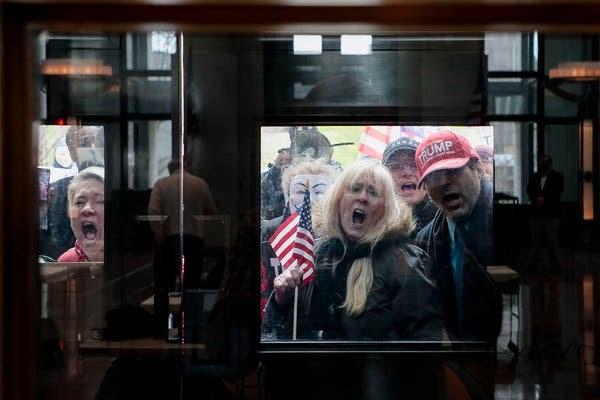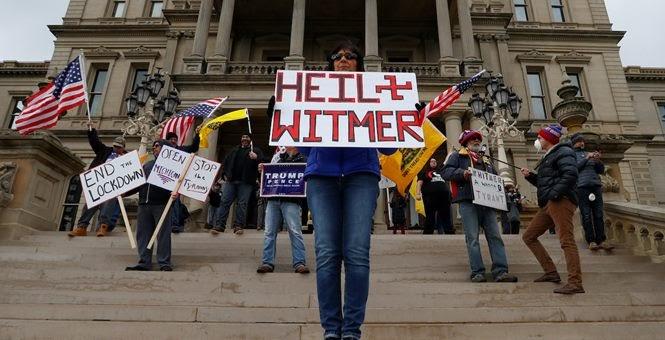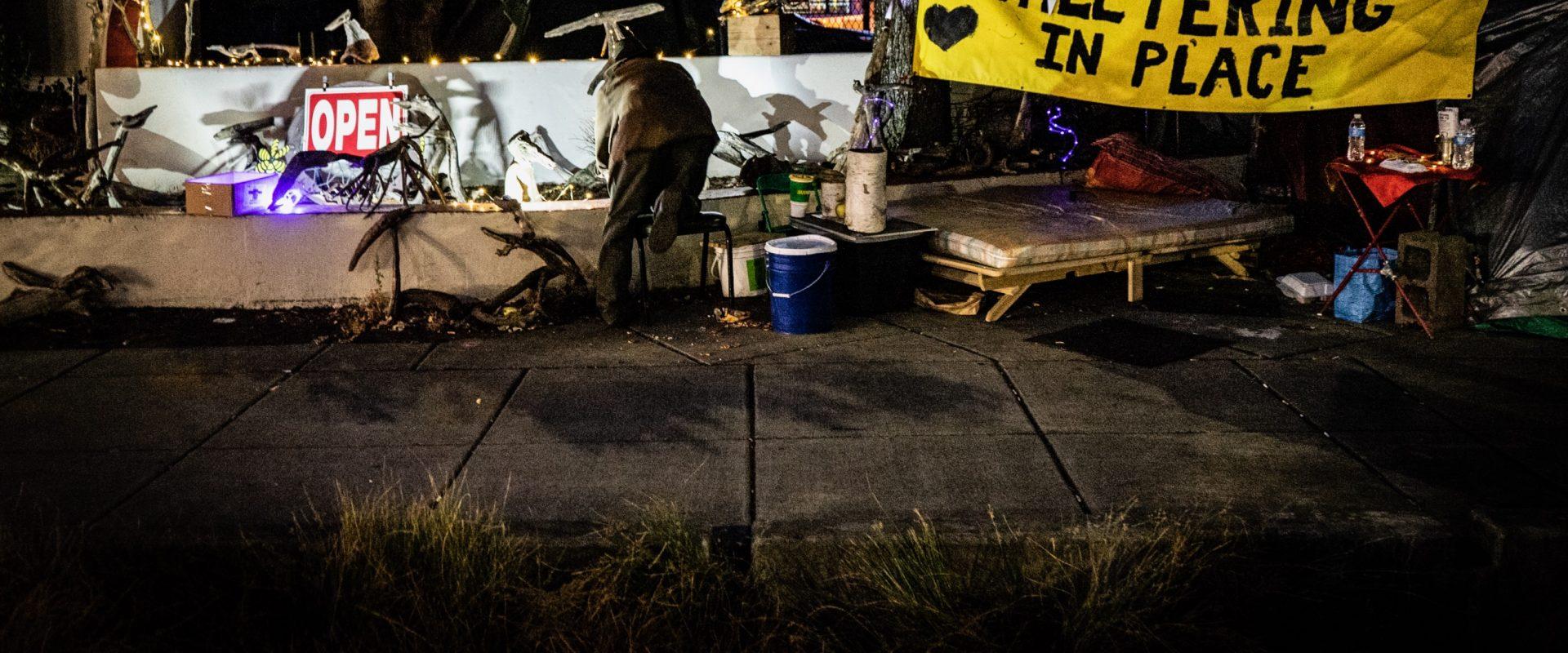America loves the idea of perpetual rebellion. The righteous overthrow of power, whatever, whomever it might happen to be. Give Me Liberty or Give Me Death. Don’t Tread On Me. Strands of our national DNA. By God, it’s the plague; let’s have a Tea Party. Screw that mask, say the far-right militias, even if Dr. Fauci says we will all get sick.

Joshua Bickel, The Columbia Dispatch
The worldwide pandemic of the novel Coronavirus runs unchecked, without any vaccination or medical containment on the horizon. The United States, by a wide and widening margin, leads the world in case numbers and death counts and, unique in the world, in its hostility to science. Without national scientific leadership–principled testing and contact tracing, multi-phased clinical vaccine trials–our only real defenses against contagion are quarantine, self-isolation, social distancing, and closing the economy.
Nevertheless, state by state, a movement stirs from some deep well of our national character. Restlessness. Discontent. Yearning for freedom. Some citizens of the great states of Michigan, Ohio, Minnesota and Wisconsin–all electoral battlegrounds–rage against these defensive public health measures. Rebels in the name of God and the Constitution, they invoke a right angled swastika as a way to make an example of Michigan’s Governor, Gretchen Whitmer, who is trying to protect the health of her citizens. Those who protest, all of them white, compare what they’re doing to the actions of Rosa Parks in the Civil Rights movement.
The irony of the Parks reference must not be lost. Especially after the death of George Floyd. Coronavirus preys disproportionately on those with underlying health conditions that make them more susceptible to the virus. These underlying conditions collect in zipcodes that tend toward greater economic poverty and healthcare inequity, where water is more poisoned than potable, where we find food deserts, fewer trees and public parks, lower graduation rates, poorer air quality and higher incidence of asthma. Coronavirus preys disproportionately on African-Americans. If we switch a digit of the zip code, the landscape shifts dramatically. In place of food deserts, we find luxurious, fetishizing food emporia, parks and playgrounds, tree-lined streets, well funded school districts with newly remodeled buildings, and gleaming hospitals and clinics.

Paul Sancya, Associated Press
In Charlottesville, Virginia, a few years ago, some of the same authoritarian imagery erupted, this time the protesters claiming the symbols for themselves. Objecting to the removal of statues celebrating the Confederacy, they proudly carried flags with swastikas. They carried tiki torches from Home Depot, and they shouted “Blood and Soil” and chanted “Jews will not replace us.”
What are we to make of these confused and confusing currents of sign and symbol, these strange expressions of nationalist style?
Our history abounds with such clusters of conflicted expression. The original British colonists, suffering from religious oppression, crossed the Atlantic to seek the freedom of unfettered spiritual practice and then, once settled, established a repressive, deadly puritanical theocracy. Even as our republic founded itself upon the mythos of liberation from tyranny, it had already become tyrannical itself, through the importation of African people as slaves and the permanent displacement of Native populations. As our founders sought to form a more perfect union, their writings remain silent on the subject of our greatest imperfections.
When these tensions surface, and we glimpse their form and meaning, as a matter of national habit we quickly paper over them, justify them, excuse them, and then look the other way. We legitimize them and make mythologies from them. We shrug our shoulders even as we make them sacred. Tropes and platitudes tumble out of our mouths before we even realize what we are saying. They arrange themselves in stanzas and melodies and develop rhythm and tempo. They become anthems and marching tunes and soundtracks of our national narrative.
They are our Battle Hymn.

